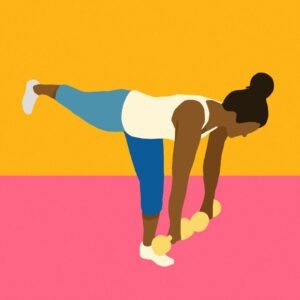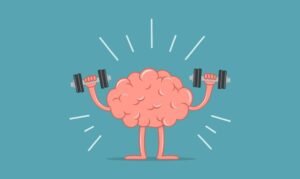Fitness is important for mental as well as for physical health. It keeps a person fit, fresh, healthy and mentally calm and peaceful.
It includes a combination of factors such as Cardiac, Muscular and body components.
Fitness not only describe having a healthy and strong body but also having a relaxed and peaceful mental health.
Aa per Physical Activity Guidelines for Americans set forth by the U.S. Department of Health and Human Services (HHS), there are some components of fitness:
CARDIORESPIRATORY FITNESS:
Cardiorespiratory fitness, or cardiovascular fitness, basically means how well your heart, lungs, and blood vessels can keep up during longer, more intense physical activities. It’s all about how efficiently your body can handle exercises that get your heart pumping and make you breathe harder. So, the better your cardiorespiratory fitness, the longer you can keep going during challenging workouts and the healthier your heart and lungs will be in the long run.

HOW TO KEEP CARDIORESPIRATORY/VASCULAR FIT?
To have good cardiorespiratory fitness, you can evolve in activities like running, cycling, swimming, or aerobics regularly. Try to incorporate at least 150 minutes of moderate-intensity aerobic exercise or 75 minutes of vigorous-intensity aerobic exercise per week.
AEROBIC EXERCISE:
Aerobic exercise is physical activities that gets your heart rate up and increases your breathing. It involves continuous, rhythmic movements that use large muscle groups and help improve your cardiovascular fitness.
MUSCULOSKELETAL FITNESS:
One distinctive aspect of the musculoskeletal system is its ability to adapt and strengthen in response to physical activity and exercise. When you involve yourself in regular strength training or weight-bearing exercises, your muscles and bones undergo adaptations to become stronger and more resilient, enhancing your overall physical performance and reducing the risk of injuries.
FLEXIBILITY:
Flexibility fitness is all about making your muscles and joints more bendy, elastic and stretchy. It’s like doing stretches and exercises to help you move better and prevent injuries. It helps to move better, increase flexibility, reduce muscle tension and enhance mobility. Yoga and Pilates are great ways to work on your flexibility and keep your body limber.
BALANCE:
Balance is all about training your body to stay steady and not lose your balance. It includes exercises that help you improve your stability and control, making it easier to stay straight, stand upright without falling. Practicing activities like standing on one leg can enhance your balance fitness.

Cardiorespiratory endurance, muscular endurance, muscular strength, body composition, and flexibility are components that can be used to measure fitness.
So, Are you physically fit? Can you walk for 7-8 easily? Can you go up and down stairs with heavy bags in your hands? Can you do exercises without getting puffed? If not, give yourself some time build your health and fitness and then see, you will be able to do these little tasks.
MENTAL HEALTH FITNESS:
Mental fitness is like working on your brain to keep it running stout and wholesome. It involves practices that boost your mind abilities, make it emotionally strong and have complete control on your self. Such exercises and practices like meditation, solving puzzles, learning new things and mindfulness can improve for mental health fit.

PHYSICAL FITNESS:
Physical fitness is ability to keep your body strong and muscular. Exercises can improve your body’s physical strength, flexibility, endurance and all over body’s health. Activities like running, bodybuilding, working out, yoga and sports can help to improve and maintain your physical fitness.
WEIGHT CONTROL:
Weight plays a major role in fitness. If you are overweight, you may face some health problems. It increases the risk of growing conditions like heart disease, diabetes, high blood pressure, joint pain and etc. It can also affect your energy levels.
Various health issues arise from being underweight involves:
- Nutritional Deficiencies: When you’re underweight, you may not be getting enough essential nutrients, which can weaken your immune system, making you more susceptible to illnesses.
- Weakened Immune System: Being underweight can compromise your body’s ability to fight off infections and illnesses, making you more prone to getting sick.
- Osteoporosis: Insufficient body weight can lead to decreased bone density, which increases the risk of developing osteoporosis and fractures.
- Fertility Issues: For women, being underweight can disrupt menstrual cycles and affect fertility. It can also lead to complications during pregnancy.
- Muscle Loss: Lack of proper nutrition can result in muscle wasting and weakness, impacting overall strength and physical performance.
- Fatigue and Weakness: Being underweight can cause fatigue, weakness, and a lack of energy to carry out daily activities.
- Impaired Growth and Development: In children and adolescents, being underweight can hinder proper growth and development, affecting overall health and well-being.
It’s really crucial to talk to a doctor if you’re worried about being underweight. They can give you personalized advice and help you reach a healthy weight to feel better overall.
IMMUNE SYSTEM:
Having a strong and healthy immune system is crucial because it helps your body fight against harmful pathogens like bacteria, viruses, and other invaders. A fit immune system can recognize and fight off these threats effectively, reducing the risk of getting sick. Keeping your immune system healthy, you can better protect yourself from illnesses and maintain your overall well-being.
You can keep your immune system fit and healthy by applying these tips in your life
- Eat a balanced diet rich in fruits, vegetables, whole grains, lean proteins, and healthy fats. These foods provide essential nutrients that support your immune system.
- Stay hydrated by drinking plenty of water throughout the day. Water helps flush out toxins and supports immune function.
- Get regular exercise to boost your overall health and immune system. Aim for at least 150 minutes of moderate-intensity exercise per week.
- Get enough quality sleep each night. Lack of sleep can weaken your immune system, so aim for 7-9 hours of restful sleep.
- Manage stress through relaxation techniques like deep breathing, meditation, or yoga. Chronic stress can suppress your immune system, so it’s essential to find ways to relax.
- Maintain good hygiene by washing your hands frequently, especially before eating and after being in public places. This helps prevent the spread of germs.
- Avoid smoking and limit alcohol consumption, as these habits can weaken your immune system.
By doing these things you can boost up your immune system and keep it fit
EDUCATION:
Having a great level of fitness is essential in education for several reasons. When students are physically fit, they tend to have better focus, concentration, and memory retention, which can impact positively on their academic performance. Regular physical activity can also improve mood, reduce stress, and enhance overall progress.
Education can enhance fitness by promoting knowledge about the importance of physical activity and healthy lifestyle choices. Through physical education classes, students can learn about the benefits of exercise, proper nutrition, and ways to maintain a healthy lifestyle. Additionally, education can raise awareness about the risks of a sedentary lifestyle and the long-term health consequences of inactivity.
Furthermore, education can empower students to make informed decisions about their health and fitness. By learning about the benefits of regular exercise, proper nutrition, and the importance of overall wellness, students are more likely to adopt healthy habits that can last a lifetime. Education can also provide opportunities for students to engage in sports, fitness activities, and recreational programs, encouraging them to stay active and fit.
By using this site, you agree to the Terms of conditions and Privacy Policy.of https://beautyvitalityco.com/



1 Comment
15-MINUTE WORKOUT ROUTEIN FOR BUSY SCHEDULES: - Beauty Vitality Co · July 6, 2024 at 7:07 pm
[…] Previous post: https://beautyvitalityco.com/a-guide-to-fitness-success/ […]